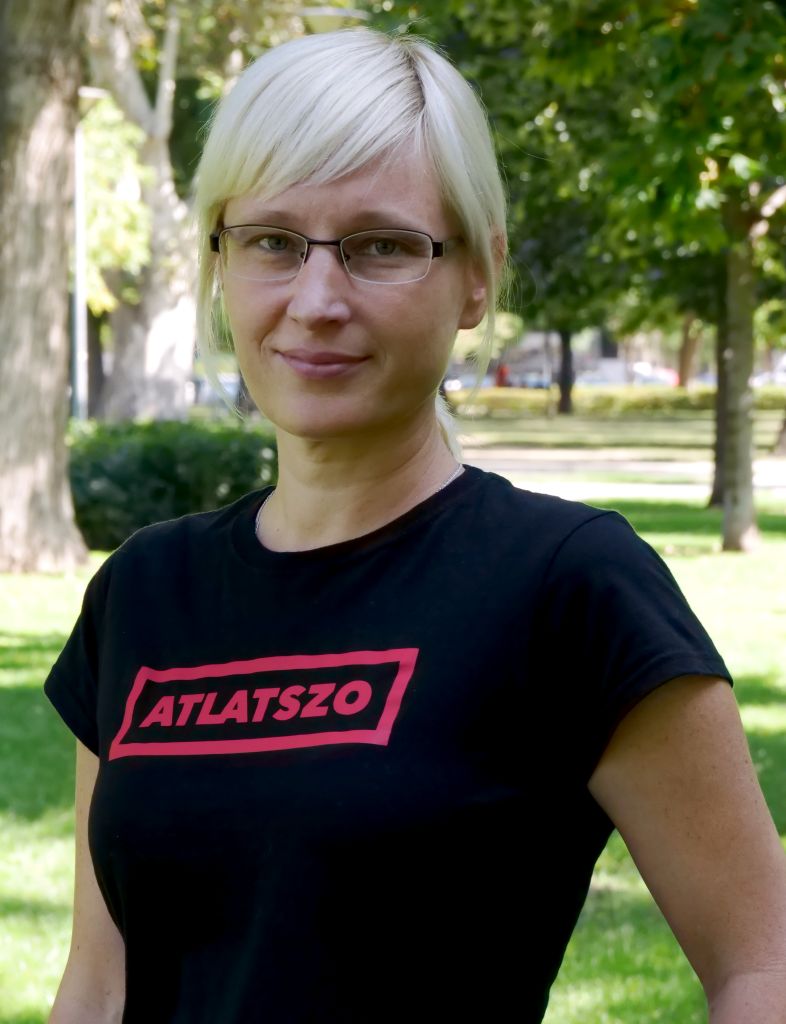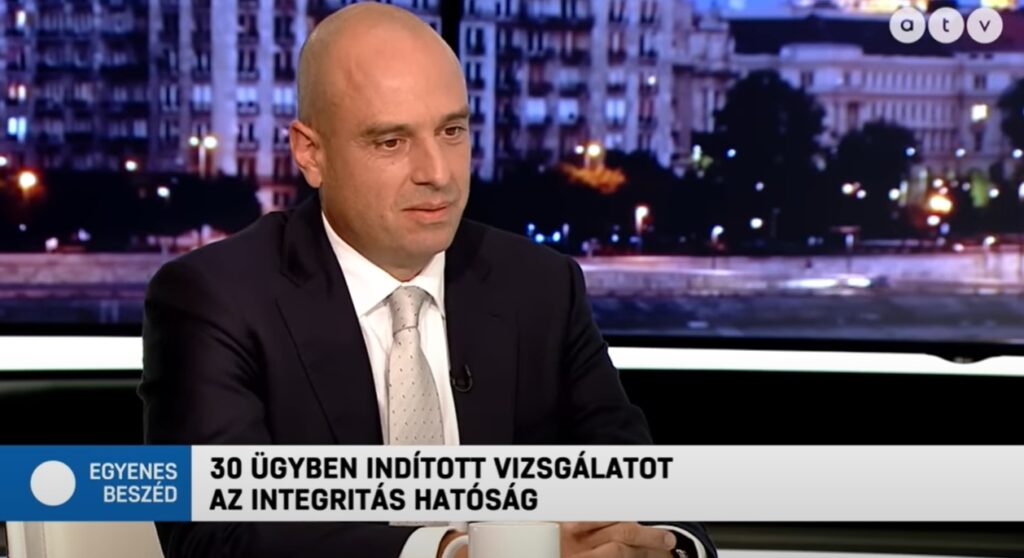The https://english.atlatszo.hu use cookies to track and profile customers such as action tags and pixel tracking on our website to assist our marketing. On our website we use technical, analytical, marketing and preference cookies. These are necessary for our site to work properly and to give us inforamation about how our site is used. See Cookies Policy
Opposition MP and the Integrity Authority took action following Atlatszo story
However, following the rejection of the police, the prosecution and the court also dropped the Integrity Authority’s motion to investigate. The authority, which is responsible for monitoring the spending of EU funds, disagreed with the decision that the police had failed to investigate contracts awarded in Győr under suspicious circumstances. However, their request for a detailed investigation was rejected. The denunciaton follows a story Atlatszo published in February, about which opposition MP Vadai Ágnes Vadai asked a question in parliament.
In February, the Corruption Research Centre Budapest (CRCB) published the anonymized results of an investigation into public procurement in Hungary. They wrote that there is a city where three companies have won almost every public procurement tender they have entered without competition.

With the help of a public procurement expert, Átlátszó identified that the unnamed municipality was Győr, and the three companies were STRABAG General Construction Ltd, KIFÜ-KAR Zrt. and VILL-KORR HUNGÁRIA Electricity Ltd. The owners of all three companies have strong political backgrounds. We also pointed out that the companies did not win individual public procurements but a framework agreement, in which they were awarded hundreds of contracts.
Following the publication of our story, Ágnes Vadai MP from the opposition party DK asked Péter Polt, Chief Prosecutor of Hungary “What procedure has been launched in the case of the public procurement in Győr?” According to her, the case raises well-founded suspicions of misappropriation of funds, bribery, restrictive agreements in public procurement and concession procedures, and abuse of office.
The chief prosecutor assessed the question as a denunciation and forwarded it to the National Investigation Office of the Police. The investigative authority quickly closed the case: the complaint of a public procurement procedure for the crime of restrictive agreement and other offences was dismissed.
Integrity Authority has called on the police to investigate
But the story does not end there. Gemist.hu recently asked the Integrity Authority (IA) in a FOI request which cases they disagreed with the prosecution’s rejection of the corruption complaint and asked for a review of the rejection decision. One of these cases was the story we uncovered in Győr.
The Integrity Authority has powers “concerning planned, ongoing, or past actions or projects receiving financial support from the European Union in whole or in part”, and anyone can report to them if they find any of the issues. In May, they say they have already investigated more than 30 cases.
According to documents by the Integrity Authority, the investigating authority has not conducted any actual investigation, even though the article contained specific names and details. In the view of the IA, the decision “deliberately avoids including the information of the denunciation in the decision, thus avoiding the obligation to order an investigation.” Moreover, according to the IA, the police did not consider all the possible crimes, and the MP was not questioned either.
And since there was no investigation, it is impossible to exclude the possibility of committing a crime.
The court says everything is in order
The IA’s motion for reconsideration bounced not only off the investigating authority but ultimately also off the court.
Gemist.hu has also requested the responses to the motion. It states that the police did not find the petition sufficiently substantiated and did not annul its previous decision. The prosecutor’s office concluded the same and forwarded the petition to the Central District Court of Buda.
The court also found the petition to be unfounded and dismissed it.
The Integrity Authority also attached the anonymized statement of reasons they received from the court. “Of course, the present case and the investigative article in question are not free of political content, and it is through this that the denunciation and the rejection must be assessed”.
The court also found that the police had acted correctly since an investigation can only be ordered if there is a mere suspicion that a crime has been committed, and they say that is not the case. The circle is now closed, and there is unlikely to be a further investigation into suspected corruption in the Győr tenders.
Questions that should have been asked
We asked a public procurement expert on the reasoning of the police and the court.
In his opinion, if one looks strictly only at Atlatszo’s story, the authorities are right, it does not indeed indicate a crime. In itself, the fact that many orders are placed under a framework agreement and that hundreds of separate contracts are concluded to draw down the framework amount is not an offence.
However, three questions arise:
- Why was the large number of contracts necessary? According to the expert, there is a suspicion that they have split up a large number of contracts that they could have tendered for in one go so that they could later impose it as a reference condition in a subsequent procurement procedure. Even the biggest firms have difficulty presenting 200 contracts. No wonder that there was only one bid.
- It is not only the number of contracts that matters but also when a public procurement is tendered with restrictive conditions, meaning there is no real competition to select the winner. The prosecution and the court should have investigated how it is possible that there was no competition in a multi-billion framework agreement procedure (at the selection stage) that will provide the winner with a guaranteed income for many years.
- Finally, the court writes “Contrary to what was stated in the motion for reconsideration, as the prosecutor general’s office rightly pointed out in its observations, the investigating authority had to deal only with the merits of the complaint and could not go beyond that. “It is conceivable that this finding is in line with the existing legislation, but is the judiciary only allowed to investigate what is revealed by the press and is not entitled/obligated to carry out other investigative acts on its own?” – the expert asked the (rhetorical) question.
Translated by Zita Szopkó. The original, more detailed Hungarian version of this story was written by Eszter Katus and can be found here. The article was produced in cooperation between Átlátszó and K-Monitor, with the support of the Open Society Initiative for Europe (OSIFE). Cover photo: Youtube/ATV.
Share:
Your support matters. Your donation helps us to uncover the truth.
- PayPal
- Bank transfer
- Patreon
- Benevity
Support our work with a PayPal donation to the Átlátszónet Foundation! Thank you.
Support our work by bank transfer to the account of the Átlátszónet Foundation. Please add in the comments: “Donation”
Beneficiary: Átlátszónet Alapítvány, bank name and address: Raiffeisen Bank, H-1054 Budapest, Akadémia utca 6.
EUR: IBAN HU36 1201 1265 0142 5189 0040 0002
USD: IBAN HU36 1201 1265 0142 5189 0050 0009
HUF: IBAN HU78 1201 1265 0142 5189 0030 0005
SWIFT: UBRTHUHB
Be a follower on Patreon
Support us on Benevity!

